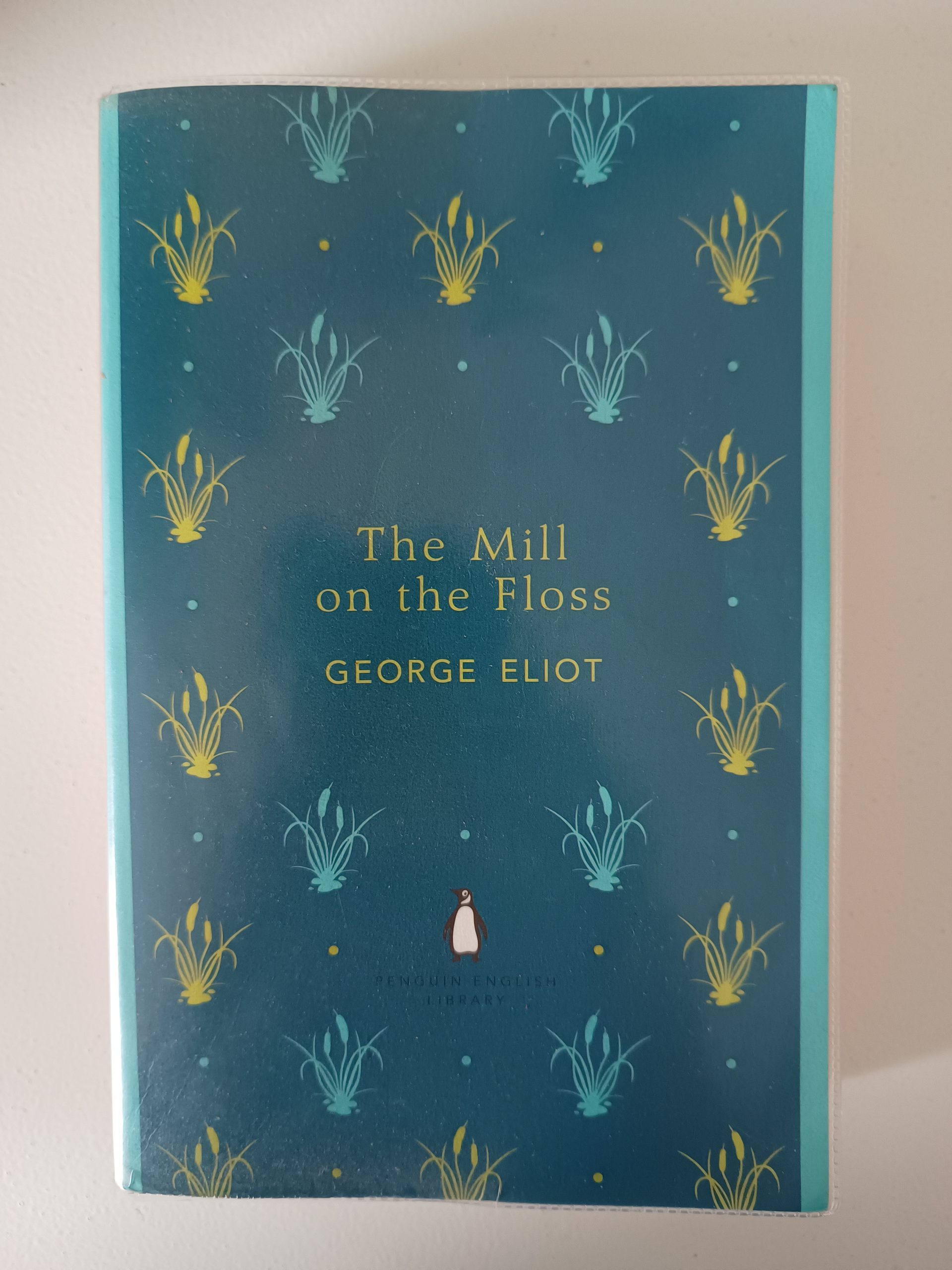The Mill on the Floss, by George Eliot
When I spotted this in the library it came to my attention that I had done a whole English degree without reading any George Eliot. This felt like an oversight: she was a leading writer of the Victorian period and her books still touched people today. I knew this because my friends had read them. Besides, my only previous encounter with this book was an excerpt I saw in which the young Maggie Tulliver rips the hair out of her dolls in passionate frustration - and I wanted to understand this in context. So I set out to remedy my ignorance, and here are my conclusions.

The 'passionate frustration' I gleaned from that one short extract is actually a pithy way of describing the whole book. The Mill on the Floss tracks the plight of Maggie Tulliver, who is spirited, intelligent, belligerent, and tragically beaten down and misunderstood. The first chunk of the novel charts her childhood with her brother Tom at the titular mill. Then we follow her through the trials of her father's bankruptcy and into her young womanhood, a life stage which naturally brings a host of romantic woes. The feeling that underpins every stage is frustration: Maggie is belittled on account of her womanhood, helpless because of her family's poverty, and a slave to her internalised ideas of what she emotionally owes people.
Eliot's construction of this smothering society was very convincing; I strongly suspect there are flashes of Eliot herself in Maggie. I liked the way she drew this world by channelling both seriousness and humour into it: the book was moving and at times exasperating, but at the same time funny, and every element played into the social commentary.
Firstly, the serious: Maggie's older brother Tom is possibly the most infuriating book character I have ever met. Tom is self-centred, entitled, prejudiced, rude, lazy, and crucially a man, which means he can do no wrong. Early on in the novel Tom is sent off to be educated. Although he is by far Maggie's intellectual inferior, his maleness gives him a free pass to success, and when Maggie comes to visit he tramples on her excitement. I love the way Eliot describes Maggie's thirst for learning: as she peers illicitly over Tom's shoulder at the Latin dictionary the words are like exotic plants or strange beasts to be studied, mysterious and absorbing. It's a hunger for knowledge and language that I myself have (and I'm certain Eliot did too), but it's not for girls. Tom squashes Maggie at every turn, and the most infuriating thing about this is that Maggie is absolutely, naively and self-destructively devoted to him.
The beastly brother and his tireless emotional manipulation of the heroine is a distressing portrait of a misogynistic world. But this world is also materialistic - and this is the bit that Eliot does humorously. All the way through, she has a lightly satirising tone that giggles at the expense of most characters. It's only Maggie and the similarly downtrodden Philip Wakem that we take seriously: the rest of the cast is quite Dickensian in its stereotyped silliness. Whether it's Mr Glegg loving his wife for her exemplary napkin-folding and the texture of her pastry, or Maggie's own mother valuing her furniture as highly as her children, this is a ridiculously materially-minded society. It's a book where financial motive, however self-undoing, drives much of the plot.
The final section of the book - the romantic woes and their aftermath - left me unconvinced. I thought the character of Stephen Guest (a love interest, of a sort) entered too suddenly, his storyline rushed. The ending, too, was disappointingly abrupt and unfulfilling. But that aside, I enjoyed this book as a study of the frustration of a bright young girl in an oppressive world. Tearing the hair out of dolls is the only kind of control Maggie can ever exert, projecting her frustration onto her helpless toys - and perhaps there is a parallel sense of release for George Eliot, who plays with Maggie as her miniature and writes her into doom. That excerpt, it turns out, was very insightful indeed.
